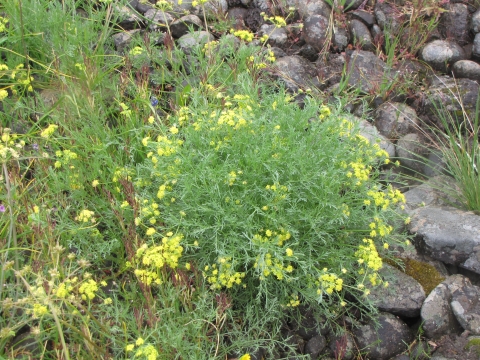States
OregonThere are 740,000 acres in California and Jackson County, Oregon, which are designated as critical habitat for 15 wetland animals and plants listed as threatened or endangered under the Federal Endangered Species Act, by the U.S. Fish and Wildlife Service. The four animal species include: Conservancy fairy shrimp, longhorn fairy shrimp, vernal pool tadpole shrimp, and vernal pool fairy shrimp (found in Jackson County, Oregon). There are 11 plants species that occur in/near vernal pools, two of which occur in Southwest Oregon. These species all depend on the seasonally-flooded wetlands known as vernal pools.
Typical Vernal Pools
Vernal pools are seasonal wetlands that form only in regions where specialized soil and climatic conditions exist. During fall and winter rains typical of Mediterranean climates, water collects in shallow depressions where downward percolation of water is prevented by the presence of a hard pan or clay pan layer (duripan) below the soil surface. Later in the spring when rains decrease and the weather warms, the water evaporates and the pools generally disappear by May. The shallow depressions remain relatively dry until late fall and early winter with the advent of greater precipitation and cooler temperatures.
Specific Adaptations
Vernal pools provide unusual "flood and drought" habitat conditions to which certain plants and animals have specifically adapted. Vernal pools are a prominent feature of the Agate Desert landform, north of Medford, where they are an important link in the food chain for migrating waterfowl, shorebirds, birds of prey, frogs, toads, salamanders and pollinating insects.
Diminishing Habitat
Only 23 percent of the original vernal pool topography and hydrology in the Agate Desert remains intact. Residential, commercial, and industrial development, along with land leveling, have claimed nearly 60 percent of the historic range of this Agate Desert landform. The remainder of the habitat is either severely altered by historic and continuing land uses, or occurs along the fringes of the landform where vernal pools are weakly expressed.
Vernal Pool Library Collection
For VPIN site visit summaries, meeting notes, and technical assistance related to Assessment updates please contact the Roseburg Office at 541 957- 3474.




